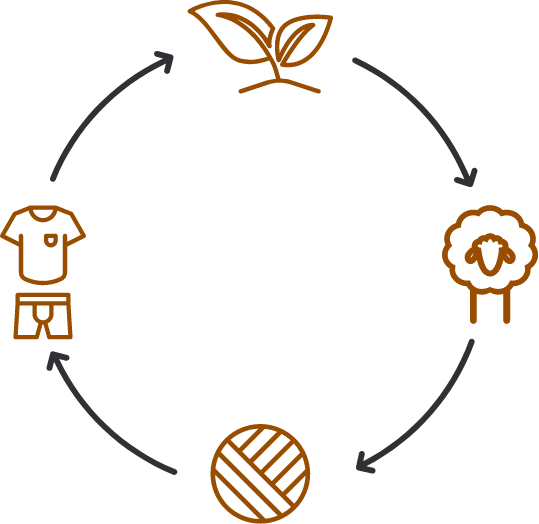Biodegradable
Unlike synthetic materials that ultimately end up in landfill, merino wool biodegrades back into the soil and degrades in approximately four months under normal conditions and even quicker in warm and moist ecosystems. The wool is made up of the protein keratin, so microorganisms like bacteria and fungi break down the protein building blocks which leads to producing vital plant nutrients like nitrogen, magnesium and sulfur back into the soil. Its excellent water retention properties promote better plant growth and better biodiversity when embedded in the soil.
Regenerated agriculture
Regenera’ve agriculture is a method of farming which improves ecosystems and the resources it uses, rather than deple’ng them. Mixed farming with sheep can include rota’onal grazing and cover crops to improve the soil structure and health. This system leads to beQer bio-diversity, improved micro nutrients in the soil, higher quality vegeta’on and creates more natural environments without requiring ar’ficial inputs or chemical fer’lisers.
Carbon cycle assistance
An increase of free carbon in the atmosphere causes an increase in global warming effects. Sheep and wool are part of the natural carbon cycle, which decreases carbon emissions through carbon sequestra’on. This process involves wool biodegrading and enriching the soil for beQer plant growth, the plants then absorb the carbon from the atmosphere which will be consumed by sheep.
Eco-friendly
The excessive energy costs of using washing machines and cleaning products, on top of millions of microplas’cs going into the oceans are not good for the environment. Merino wool is naturally odor-resistant and is characterised by its an’bacterial ability. This means less washing, so you will get a longer lifespan out of the fabric. This leads to reducing greenhouse gas emissions by purely wearing your clothing for longer.








